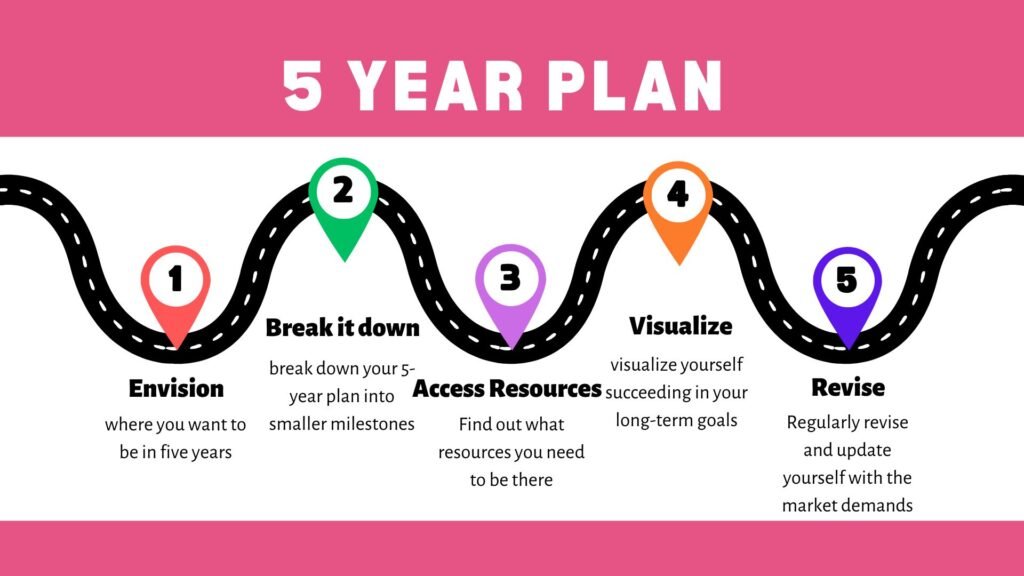Hi Beautiful,
Do you feel stuck? Watching another year slip by without making the changes you want. You set big goals, get excited for a few weeks, and then watch them fade away.
The good news is, you can achieve your goals. You just have to change your approach.
This new year instead of making vague promises to “get fit” or “save money,” break down our goals into actual, doable steps. And build habits that stick, rather than chasing quick fixes.
Goals setting gives you a plan and a new year is the perfect time for it. People make New Year’s resolutions because it’s a way of saying,
“I have a plan, and I’m going to follow it.”
Why New Year Goals Are Important?
New year gives you a “Fresh Start Effect.” It’s a simple idea: when a new month or year begins, you feel inspired to set new goals.
Setting goals for the new year is very important because goals give you a clear direction for 12 months. You know exactly where you want to go. Without a plan, you risk going in circles and wasting time.
In this article, we’ll share exciting new year goals that will change your life for better.
With each goal, you’ll get actionable tips to turn your dreams into reality. By the end of this article, you’ll have a clear set of goals and the tools to achieve them.
Get ready to make this year your best one yet!
13 must-set new year goals
1. Reflect on the Past Year
I hated to look back at my past because it felt like I was facing failure. But I changed my perspective, instead of looking at the failure I focused on the lessons it taught.
I will advice you the same:
You can’t change your past, but you always can learn from it.
Try this simple exercise:
- Write down 3 things that went well
- List 2 things you wish had gone differently
- Identify 1 lesson you learned
Make a Fresh To-Do List for the New Year
- Break Down Your Goals: Take your goals for the new year and break them into smaller tasks.
- Set Deadlines: Assign realistic deadlines to each task.
- Prioritize Tasks: Not all tasks are equal. Prioritize them based on importance and urgency. Focus on high-priority tasks first to set a strong foundation for success.
Craft a 5-Year Plan

- Dream Big: Envision yourself where you want to be in five years. Think about your career, personal life, or any other aspect and make a plan.
- Break It Down: Similar to your yearly goals, break down your 5-year plan into smaller milestones.
- Visualize Success: Visualize yourself succeeding in your long-term goals. Visualization has a powerful impact on turning your dreams into a tangible reality.
2. Prioritize Health and Well-being
“A healthy outside starts from the inside.”
– Robert Urich
Physical Health:
In the hustle of daily life, we neglect our health, which leads to burnout, stress, and decreased productivity.
Make your health a top priority this year.
- Stay Active: Establish an exercise routine you enjoy. E.g. Jumping, dancing, or a 30-minute walk.
- Balanced Nutrition: Eat whole foods. Prepare meals in advance to avoid the temptation of having junk food.
- Hydration: Keep a water bottle with you at all times. Set reminders if you forget to drink water.
- Quality Sleep: Establish a calming bedtime routine. Read a book or practice gentle stretches before bed.
Mental Health:
- Take short breaks throughout your day. Even a 5-minute breather refreshes your mind.
- Express Yourself. Find a creative outlet. It could be journaling, painting, or even singing in the shower!
- Set a “worry time” limit (I give myself 15 minutes to worry, then move on)
- Delete social media apps that make you feel bad
- Say no to one thing each week that drains your energy
3. Start Writing a Journal
journaling is the best way to express your thoughts, feelings, and experiences. But the problem is you do not know how to journal and lose your motivation soon enough.
I struggled with this, too. My first attempt at journaling lasted exactly three days. I felt pressure to write profound thoughts. When I couldn’t think of anything “important” enough to say, I got overwhelmed. It felt more like a chore rather than a helpful tool.
But I have a solution for you: Start with just three sentences a day. That’s it.
Here’s my simple framework:
- One thing that happened today
- One thing I’m grateful for
- One thing I want to do tomorrow
How does journaling help you succeed?
- Goal Visualization:
Journaling helps you focus on your priorities. It allows you to visualize where you want to go. - Boosted Accountability:
When you document your goals and progress, you create a contract with yourself. Journaling fosters accountability, and pushes you to stay committed. - Stress Reduction:
The act of journaling is therapeutic. It releases pressure and reduces stress. - Learning from Experiences:
Journaling lets you review past experiences, both successes and failures.
4. Read Books
Reading makes you smarter, and creative and helps you understand things better. Make reading a priority this year and see your life change.
- Pick books you genuinely want to read (yes, fiction counts!)
- Read for 10 minutes before bed (set a timer)
- Abandon books that don’t grab you after 50 pages
- Join a book club
- Listen to audiobooks if you’re always on the go
Related: “13 Life-Changing Books That Will Transform Your Worldview,” and find books that could change your life!
5. Learn a new skill
In a rapidly changing world, you need to update your skills regularly. When you don’t keep up, you limit your opportunities for advancement.
Here’s a simple way to start
- Pick ONE specific sub-skill to start with
- Set a 30-day “just try it” goal
- Find a beginner-friendly project
Top Skills to Consider
Digital Literacy:
Example: Learn basic coding languages (like Python or JavaScript).
Explore online coding platforms. Join coding communities and take on small projects to apply your skills.
Communication Skills:
Example: Improve your public speaking, writing, or interpersonal communication.
Join public speaking groups, practice writing regularly, and actively seek feedback to refine your communication skills.
Critical Thinking:
Example: Develop analytical and problem-solving skills.
Solve puzzles, engage in debates, and approach challenges with a solution-oriented mindset.
Creativity:
Example: Learn graphic design, content creation, or brainstorming innovative solutions.
Dedicate time to creative hobbies, explore different art forms, and challenge yourself to think outside the box.
6. Establish a Financial Plan
Without a solid financial plan, you live paycheck to paycheck. This makes it hard to save for important life goals.
Create a comprehensive financial plan this year. Here’s how:
- Assess Your Current Situation: Take stock of your income, expenses, assets, and debts.
- Set Clear Financial Goals: Define your priorities whether it’s building an emergency fund, paying off debt, or saving for a down payment on a house.
- Create a Budget: Track your spending and allocate your income towards your goals. Use budgeting apps to make this easier.
- Build an Emergency Fund: Save 3-6 months of living expenses for unexpected situations.
- Tackle Debt: Prioritize paying off high-interest debt, like credit card balances.
- Start Investing: Build your investment portfolio, even if it’s just a small amount each month.
- Educate Yourself: Read books on personal finance or take a financial literacy course.
7. Groom Yourself

While chasing your dreams, you neglect your grooming and style, which impact your self-confidence and how others perceive you.
Poor grooming habits leads to reduced self-esteem, missed opportunities in both personal and professional life, and a general feeling of not putting your best foot forward.
This new year, make grooming one of your top goals to achieve.
Follow the “One Better” System:
- Take your current routine
- Improve ONE thing at a time
- Master it before adding anything new
Invest in Grooming
- Skincare Routine: Invest in quality skincare products suitable for your skin type.
- Regular Haircare: Find a hairstyle that suits you and maintain it with regular trims.
- Dress for Success: Audit your wardrobe. Invest in versatile, well-fitting pieces that make you feel confident.
- Oral Hygiene: Don’t neglect your dental health. Make regular brushing, flossing, and dental check-ups.
- Exercise and Nutrition: Grooming starts from within. A healthy diet and regular exercise contribute to your overall appearance.
- Nail Care: Keep your nails clean and well-maintained.
- Scent: Use a signature scent that become your style.
8. Remove toxic people from your life
Toxic relationships drain your energy, lower your self-esteem, and hold you back from achieving your goals.
Recognize toxic relationships in your life and reclaim control over your life.
How to Remove Toxic People from Your Life
Identify Toxic Behaviors:
Recognize signs of toxicity like constant criticism, manipulation, or disrespect for your boundaries.
Set Clear Boundaries:
Communicate your limits clearly and firmly to toxic individuals.
Limit Contact:
Reduce the time you spend with toxic people, both in person and on social media.
Build a Support System:
Surround yourself with positive, supportive individuals who uplift you.
Learn to Say No:
Don’t feel obligated to engage with toxic people or situations.
9. Become a Morning Person:
Becoming a morning person changes your life. It boosts your productivity and improves your overall well-being.

Start with the 15-Minute Method:
- Week 1: Wake up 15 minutes earlier than usual
- Week 2: Add another 15 minutes
- Continue until you reach your goal time
Benefits of Being a Morning Person
- Increased Productivity:
Morning people experience higher levels of productivity in the early hours. The quiet and undisturbed time provides an excellent opportunity to tackle important tasks and set a positive tone for the day. - Enhanced Mental Clarity:
Mornings are associated with mental freshness. By becoming a morning person, you tap into a time when your mind is clear, focused, and better equipped to handle complex cognitive tasks. - Establishing a Routine:
Mornings allow you to establish a consistent daily routine. A structured morning routine contributes to better time management and improved organization. - Boosted Physical Health:
Morning exercise is known to have numerous health benefits, including increased energy levels, improved mood, and enhanced metabolism. - Enhanced Sleep Quality:
A consistent wake-up time regulates your body’s internal clock, contributing to better sleep quality. Morning people maintain a healthy sleep schedule.
10. Give back to the community
Giving back to the community is a strong expression of empathy and social responsibility. It means contributing your time, resources, or skills to improve the well-being of others.
This effort creates a positive impact on the community as a whole.
Ways to Give Back to the Community
- Identify Your Passions: Choose causes that resonate with you personally.
- Start Small: Begin with manageable commitments, like volunteering once a month.
- Use Your Skills: Offer your professional or personal skills to organizations that need them.
- Donate Thoughtfully: If you can’t give time, donate money or goods to local charities.
- Engage in Local Events: Participate in community clean-ups, fundraisers, or local government meetings.
- Mentor Others: Share your knowledge and experience with those who could benefit from it.
- Support Local Businesses: Shop locally when possible to support your community’s economy.
- Organize a Community Project: Start a project that addresses a local need.
11. Start a New Hobby
You feel boredom when you’re following your routine life with no fun activities.
Breaking free from your daily habits opens new doors. Trying a new hobby sparks your creativity and leads to new experiences. So let’s make a goal to try something new this year.
Practical Steps to Try a New Hobby
- Explore Your Interests:
What do you like to do? Think about activities that have always intrigued you. choose a hobby that excites you, e.g. cooking, photography, gardening, or playing a musical instrument. - Start Small:
Begin with a small commitment. Rent or borrow equipment first and then continue. - Utilize Online Resources:
The internet has many tutorials, courses, and communities for various hobbies. Look for online lessons, tips, and forums to connect with others who share your interest. - Experiment and Be Open-Minded:
Don’t be afraid to try different hobbies. Stay open-minded and willing to explore. - Make it a Regular Habit:
Include your new hobby in your routine.
Trying a new hobby is a fun and rewarding experience. Give it a go!
12. Declutter your house
A cluttered home makes you feel overwhelmed. It creates a sense of chaos and makes you feel out of control. This mess impacts your mental well-being as well.

The Importance of Decluttering:
- Reduced Stress and Anxiety:
Living in a clutter-free environment can significantly reduce stress and anxiety. A tidy space promotes a sense of order and control, providing a calming effect on the mind. - Increased Productivity:
A clutter-free space enhances productivity. When your surroundings are organized, you can focus better on tasks at hand, leading to increased efficiency and a more streamlined daily routine. - Improved Mental Clarity:
Physical clutter often translates to mental clutter. Decluttering helps clear your mind, allowing you to think more clearly and make decisions with greater ease. - Enhanced Creativity:
An organized space can stimulate creativity. Removing distractions and excess belongings provides room for inspiration and encourages a more creative mindset. - Efficient Use of Space:
Decluttering allows you to optimize your living space. By getting rid of unnecessary items, you create more room for the things that truly matter and improve the functionality of each area in your home.
Simple Steps to Declutter Your House:
1. The 10-10-10 Rule
The 10-10-10 Rule is a simple yet powerful way to tackle clutter:
- 10 Minutes Per Day: Dedicate just 10 minutes each day to decluttering.
- 10 Items Per Session: Choose 10 items to sort through each time.
- 10 Days Per Area: Focus on one specific area for 10 days.
2. The Four-Box Method
Another effective strategy is the Four-Box Method. Sort your items into four categories:
Keep:
- Items you use and love.
- Things that have a clear purpose in your space.
Donate:
- Items in good condition that you no longer need.
- Things that can help others when you give them away.
Trash:
- Broken or damaged items.
- Things that are no longer useful and cannot be recycled.
Relocate:
- Items that belong in another room or space.
- Things that need to be returned to their proper place.
3. The “One In, One Out” Policy
Implement a “One In, One Out” Policy. For every new item you bring in, remove one item from your home.
4. The One-Year Rule
Follow the One-Year Rule. If you haven’t used an item in the past year, get rid of it.
13. Keep a “Move Forward Attitude”
As Maya Angelou said,
“You may encounter many defeats, but you must not be defeated.”
Having a “Move Forward” attitude is vital for your personal growth. In life, you will see many challenges and face a lot of setbacks.
Do not let any situation hold you back from pursuing your goals.
How to Keep a Moving Forward Attitude?
- Practice Positive Self-Talk: Replace negative thoughts with positive, encouraging ones.
- Set Future-Focused Goals: Create goals that excite you and give you something to work towards.
- Practice Gratitude: Regularly acknowledge the good things in your life, no matter how small.
- Take Action: Don’t wait for perfect conditions. Take small steps towards your goals every day.
- Celebrate Progress: Acknowledge your achievements, no matter how small they seem.
Final Thoughts
You don’t have to tackle all these goals at once. Pick one that resonates most with you right now. Start small. Be consistent. And most importantly, be kind to yourself when you slip up.
Your Action Plan
- Choose ONE goal from this list
- Follow the specific solution provided
- Track your progress for 30 days
- Add another goal only when the first becomes routine








Pingback: Top 25 Simple and Easy New Year Resolution Ideas for 2025 | goalsempire.com
Pingback: 8 Exciting New Year Activities for Kids They’ll Love | goalsempire.com
Hello my friend! I wish to say that this article is awesome, nice written and include approximately all vital infos. I would like to see extra posts like this .
amei este site. Pra saber mais detalhes acesse nosso site e descubra mais. Todas as informações contidas são conteúdos relevantes e únicos. Tudo que você precisa saber está está lá.
This blog is definitely rather handy since I’m at the moment creating an internet floral website – although I am only starting out therefore it’s really fairly small, nothing like this site. Can link to a few of the posts here as they are quite. Thanks much. Zoey Olsen
Hello. Great job. I did not imagine this. This is a splendid story. Thanks!
Aw, this was a very nice post. In idea I wish to put in writing like this additionally – taking time and precise effort to make a very good article… however what can I say… I procrastinate alot and in no way seem to get one thing done.
Hello, i feel that i saw you visited my blog thus i came to “return the choose”.I’m trying to find things to improve my website!I guess its ok to use some of your ideas!!
I used to be very pleased to seek out this web-site.I needed to thanks in your time for this excellent learn!! I positively enjoying every little bit of it and I’ve you bookmarked to check out new stuff you blog post.
Can I simply say what a aid to seek out somebody who really knows what theyre talking about on the internet. You undoubtedly know find out how to carry a difficulty to gentle and make it important. More individuals must read this and perceive this side of the story. I cant believe youre no more popular because you positively have the gift.
Heya i am for the primary time here. I came across this board and I find It really helpful & it helped me out much. I’m hoping to present something again and aid others like you helped me.
Pretty! This was a really wonderful post. Thank you for your provided information.
Este site é realmente demais. Sempre que consigo acessar eu encontro novidades Você também pode acessar o nosso site e saber mais detalhes! informaçõesexclusivas. Venha descobrir mais agora! 🙂
me encantei com este site. Pra saber mais detalhes acesse o site e descubra mais. Todas as informações contidas são conteúdos relevantes e exclusivas. Tudo que você precisa saber está ta lá.
Woah! I’m really digging the template/theme of this site. It’s simple, yet effective. A lot of times it’s tough to get that “perfect balance” between user friendliness and visual appearance. I must say you’ve done a awesome job with this. In addition, the blog loads very fast for me on Firefox. Excellent Blog!
hello!,I love your writing so much! proportion we communicate more approximately your post on AOL? I need an expert in this space to unravel my problem. Maybe that is you! Taking a look ahead to peer you.
I’ve been browsing on-line more than 3 hours these days, but I by no means found any fascinating article like yours. It is pretty worth sufficient for me. In my view, if all site owners and bloggers made excellent content material as you did, the net might be a lot more helpful than ever before.
Good site! I truly love how it is simple on my eyes and the data are well written. I’m wondering how I could be notified whenever a new post has been made. I have subscribed to your RSS feed which must do the trick! Have a great day!
Greetings! Very helpful advice on this article! It is the little changes that make the biggest changes. Thanks a lot for sharing!
Wow! Thank you! I continuously needed to write on my website something like that. Can I implement a fragment of your post to my blog?
Nicely put together
I truly appreciate this post. I have been looking everywhere for this! Thank goodness I found it on Bing. You have made my day! Thanks again!
Great write-up, I am normal visitor of one’s web site, maintain up the nice operate, and It is going to be a regular visitor for a lengthy time.
Enjoyed reading this
As soon as I observed this web site I went on reddit to share some of the love with them.